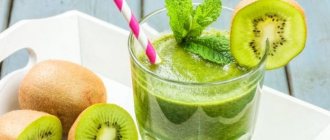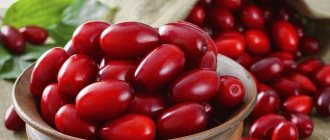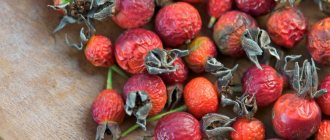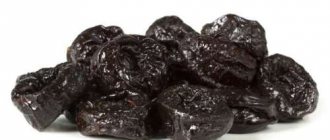Key Features
Popular vegetables such as tomatoes and cucumbers contain a whole range of vitamins, microelements and nutrients. And although many consider them absolutely harmless, in case of stomach ailments, both a cucumber and a tomato can negatively affect the course of the disease.
Therefore, before consuming them, it is necessary to study the characteristics of each vegetable separately.
The benefits and harms of tomatoes
This vegetable is a storehouse of useful substances and vitamins, but the main distinguishing feature of tomatoes is the minimal amount of sugar and the complete absence of starch in the composition. The calorie content of this red vegetable is minimal, so it is often included in the diet of those losing weight. Contains omega-6 and omega-3 acids, almost 95% water, vitamins A, C, K and B vitamins. In addition, tomatoes are enriched with microelements such as magnesium, sodium, iron, calcium and phosphorus.
Having such a rich composition, it is not surprising that tomatoes have a number of positive properties that are important for humans:
- Helps reduce the risk of the formation of malignant tumors and the development of atherosclerosis.
- Act as antidepressants and normalize the level of nervous tension.
- They take an active part in removing excess toxins from the body.
- They relieve inflammation and have an antibacterial effect.
- They have a beneficial effect on the skin, prolonging their youth.
Despite the positive properties of tomatoes, they also have some contraindications. Thus, it is not recommended to include this vegetable in the diet of patients with gallstone diseases, high blood pressure, or a tendency to allergic reactions. Neglecting these contraindications, the patient faces the risk of side effects.
The benefits and harms of cucumbers
A well-known vegetable, cucumber, has special enzymes that help the body better absorb animal proteins. But its beneficial properties do not end there and the juicy vegetable can have the following effects on the body:
- cleanse toxins and metabolic end products;
- remove kidney stones;
- relieve inflammation when rinsing the gums;
- dissolve stone formations in the gallbladder and bile ducts;
- remove excess salt and water from the body with urine.
However, the above beneficial properties of cucumbers are absolutely useless for gastritis and, moreover, can cause harm. This is due to the need for a large amount of gastric juice to digest this vegetable, and the affected organ is unable to do this. With increased stomach acidity, cucumber juice can increase the amount of hydrochloric acid, which is dangerous for the development of peptic ulcers.
Contraindications
Cucumber is not included in the diet in the presence of inflammation of the gastric walls, exacerbation of gastric and duodenal ulcers, acute and chronic gastritis.
Salted and pickled cucumbers are prohibited from being included in the treatment menu for severe gastrointestinal diseases; these products activate the production of hydrochloric acid and damage the protective lining of the stomach and other digestive organs. Salted vegetables should not be regularly consumed by patients with stomach or intestinal ulcers: they contain sodium, which neutralizes the beneficial properties of cucumbers.
Before eating, cucumbers can be prepared by baking or stewing: this way the vegetables retain their beneficial properties. The amount of product consumed should not exceed 200 g per day. Cucumbers are used to prepare vegetable salads, main courses and even soups.
Eating cucumbers and tomatoes for gastritis
When there is an inflammatory process in the gastric mucosa, it is important to adhere to basic nutritional recommendations. The therapeutic diet should include healthy, gentle foods that are not capable of overloading a weakened stomach and causing complications. Therefore, before including tomatoes and cucumbers in your diet, it is necessary to study the effect of these vegetables on inflamed gastric walls.
Fresh vegetables
It is forbidden to eat fresh cucumber if you have gastritis.
Eating fresh cucumbers for gastritis is contraindicated. However, doctors allow the fruit to be eaten in small quantities and pre-peeled during the remission stage. It is allowed to eat cucumbers for inflammation of the gastric mucosa, provided that the vegetable is fresh and not treated with chemicals that can aggravate the patient’s situation.
If you have gastritis, you can include tomatoes in your diet, since digesting them does not require much effort from a damaged stomach, which cannot be said about cucumbers. Therefore, doctors even recommend consuming red vegetables, since with its help you can avoid constipation and thereby prevent the occurrence of stomach ulcers. However, it is important that the tomatoes are ripe and not sour.
Canned
A unanimous contraindication for gastritis is salted vegetables and those that have been canned.
This is due to the negative effects of salt on the body: it thickens the blood, promotes the formation of kidney stones and irritates the stomach walls. Doctors insist on avoiding canned tomatoes, as they stimulate the production of gastric juice, the excess of which can negatively affect already damaged stomach walls.
Gastritis is inflammation of the gastric mucosa. Symptoms and treatment of the disease depend on acidity. The stomach produces juice, which mainly contains hydrochloric acid. Violation of its formation leads to inflammation of the mucous membrane.
The disease is sometimes associated with the occurrence of reflux of the contents of the duodenum into the stomach. Bile and the alkaline environment of the intestines damage the protective layer on the surface of the mucosa. The disease is aggravated by poor diet, large amounts of spicy and fried foods; in adults, constant diets contribute to gastritis. As a result of inflammation, symptoms of dyspepsia, heartburn and stomach pain, and stool disorders occur.
Classification
By form:
- Chronic.
- Spicy.
According to the clinical picture:
- Surface.
- Erosive.
- Hemorrhagic.
- Atrophic.
- Hyperplastic.
For hydrochloric acid production:
- With high acidity.
- With low acidity.
By phase:
- Exacerbation.
- Remission.
The disease can occur in acute or chronic form. Acute gastritis often develops as a result of poisoning with low-quality products or chemicals. Treatment of this pathology is carried out in a hospital.
Chronic gastritis can occur with high or low acidity.
Gastritis with low acidity occurs as a result of atrophy of the stomach cells that produce hydrochloric acid. Patients begin to complain of nausea, abdominal pain, belching after eating with an unpleasant odor, increased formation of gases in the intestines and impaired digestion of food; they are often concerned about decreased appetite and stool disorders. As a result of poor digestion of food, patients begin to lose weight, anemia, dry skin and hair loss appear, performance decreases, constant fatigue and weakness appear. Gastritis with low acidity can cause precancerous diseases of the stomach.
Gastritis with high acidity, like peptic ulcer disease, is caused by the pathogenic microorganism Helicobacter pylori. Exacerbation of gastritis occurs with complaints of heartburn and abdominal pain after eating. Baking soda or milk works well to relieve heartburn. The pain is often unbearable and localized in the upper third of the abdomen. Such gastritis often turns into peptic ulcer. Gastric juice begins to form in larger quantities and damages the gastric mucosa. The disease may be complicated by bleeding or malignancy.
What to do if you suspect a disease? First of all, you need to see a doctor to make a correct diagnosis. You cannot self-medicate. Treatment of the stomach at home is carried out exclusively in conjunction with medications with an accurately established diagnosis.
To diagnose gastritis, the attending physician will prescribe blood and urine tests, which may not reveal any pathology. With erosive gastritis, slight anemia may occur. Endoscopic examination helps make the diagnosis. The main symptom of the disease is hyperemia of the mucous membrane and its thickening at the site of inflammation. It is necessary to perform a test for Helicobacter pylori - do a breath test, donate blood for antibodies, or study a piece of the gastric mucosa taken during a biopsy.
If there are contraindications to endoscopic examinations (severe heart and lung diseases, arrhythmias, heart failure, acute heart attack or stroke), an X-ray contrast examination of the stomach with barium is prescribed. The examination reveals a violation of the excretion of barium from the stomach into the intestines, and signs of ulcers, polyps or other formations are found. To determine the acidity of the stomach, intragastric pH-metry is used.
After the examination, the doctor will tell you how to treat chronic gastritis, prescribe the necessary medications and recommend a diet. Treatments for gastritis include antisecretory drugs; medications that destroy Helicobacter pylori; antacids; drugs that improve gastric and intestinal motility. For erosive gastritis, hemostatic drugs are used. But even the most effective methods may not give the desired result. Treatment of gastritis and stomach ulcers involves the prescription of medications, but traditional methods of treatment are also used for speedy healing.
Treatment of gastritis with folk remedies is carried out using medicinal herbs and a special diet containing various vegetables and fruits that have beneficial properties.
Treatment of gastritis with low acidity
Treatment of gastritis with low acidity is carried out with drugs that stimulate the gastric mucosa and promote its healing.
Herbal treatment
Medicinal herbs are widely used to treat gastritis at home.
The most effective folk remedy for low acidity is plantain. There are several folk recipes. A decoction of plantain juice is mixed with honey and taken daily, one tablespoon three times a day. Plantain tincture is prepared with alcohol or poured with vodka, then allowed to brew for a week and taken one teaspoon three times a day.
Calamus root helps get rid of gastritis. The crushed plant is poured with boiling water and allowed to brew, then take 1/2 cup 30 minutes before meals.
You can cure gastritis with the help of centaury herb. The herb must be crushed, pour boiling water and boil for 15 minutes. Leave for half an hour, strain and take a tablespoon orally before meals.
Burdock root and oats are good for increasing stomach acidity. They are taken as a tincture 30 minutes before meals.
Berries and fruits
Treatment of gastritis with folk remedies often includes berries and fruits.
- A decoction of rose hips will help reduce the production of hydrochloric acid in the stomach. Should be taken before meals.
- Sea buckthorn berries, from which decoctions and fruit drinks are made, help well with gastritis of the stomach.
- To treat gastritis, apricots are used, eaten fresh or dried, or drink apricot juice.
- Grapes help increase acidity; it is recommended to eat them 30 minutes before meals. You are allowed to consume 150 grams of fresh berries per day.
- Blueberries and lingonberries stimulate the production of hydrochloric acid in the stomach.
Honey water
Honey water will help you get rid of gastritis forever; take it half an hour before meals. It is made simply: a teaspoon of honey is dissolved in warm water, take a few sips for treatment.
Vegetables
To treat the disease with folk remedies at home, salads and vegetable juices are used.
Treatment of gastritis with low acidity is carried out over a long period of time, the main goal of therapy is to achieve the remission phase and normalize the acidity of the stomach, eliminating the symptoms of the disease.
Treatment of gastritis with high acidity
The main goal of therapy for gastritis and stomach ulcers is to achieve the destruction of Helicobacter pylori, eliminate the symptoms of pain and heartburn, and reduce stomach acidity.
Useful herbs
A set of herbs from yarrow, St. John's wort and mint helps well with heartburn. Mix in equal proportions and pour boiling water. The infusion is taken orally before meals.
Licorice root treats cough and aggravated gastritis. Grind it, brew it with boiling water and consume a tablespoon daily before meals. The decoction retains its properties when stored in the refrigerator.
Vegetables
For gastritis and stomach ulcers, potato juice helps reduce acidity. Vegetables should be peeled, grated, squeezed out the juice through cheesecloth and taken in the morning before meals. Treatment is carried out for 2 weeks.
Honey
A good folk remedy for treating gastritis is honey. This is a rare product prescribed for gastritis with varying acidity. Honey promotes healing of the mucous membrane and normalizes the production of hydrochloric acid. For a therapeutic effect, a tablespoon dissolved in a glass of warm water is enough.
Traditional treatment of gastritis with pain syndrome
It is easy to treat gastritis of the stomach using a decoction of flaxseeds. They relieve pain well and heal inflammation. A tablespoon of herb is poured into a glass of boiling water and infused for 24 hours. It should be taken on an empty stomach, one glass daily.
Effective treatment of pain is possible with the help of gooseberries. One tablespoon is poured into one glass of water and boiled for 15 minutes. Take a third of a glass of the decoction three times a day.
It is possible to treat gastritis at home with honey and milk. It relieves pain well and eliminates spasms within 15 minutes. To prevent pain, take the drink in the morning.
To treat gastritis and stomach ulcers with folk remedies, it is allowed to use chamomile, especially if you are allergic to honey. Chamomile with milk relieves pain and accelerates the healing of inflammation. First, prepare a chamomile infusion, dilute half a glass with milk and take it orally.
Thyme is used to treat gastritis at home. Two tablespoons are poured into two glasses of boiling water and left for 24 hours. Then drink a few sips after 2 hours.
Treatment of gastritis at home is carried out using aloe juice. In case of intense pain, it becomes indispensable. It is enough to chew one leaf and the symptoms will go away within a few minutes.
Banana infusion will promote healing of inflammation and effectively eliminate pain. Finely grated banana combined with peppermint and soda should be poured with boiling water and wait half an hour. The drink is ready.
Treatment of erosive gastritis
Potato juice and juice from fresh cabbage are good for erosion. Vegetables are finely chopped and juice is squeezed through cheesecloth. Take half a glass before meals, before diluting half with water. It is necessary to prepare the juice before eating so that it does not lose its healing properties.
An infusion of flaxseeds heals erosions and restores damaged gastric mucosa. It should be taken before meals. The duration of treatment is not limited.
Crushed birch leaves have a good healing effect. Finely chopped leaves are poured with boiling water and taken 100 ml an hour after eating.
Aloe is a universal remedy. The plant relieves inflammation, heals wounds, restores stomach function, and promotes a speedy recovery from erosions. Aloe leaves are finely chopped, the juice is squeezed out and mixed with honey in equal proportions. Take this mixture one tablespoon in the morning and evening until complete recovery.
Treatment of gastritis with alcohol
In the second method of treating gastritis with alcohol, they begin by taking it on an empty stomach in the amount of a teaspoon, then eat a teaspoon of honey and a spoonful of butter. Eating is allowed after an hour and a half.
Drinking alcohol is allowed in limited quantities and strictly according to the specified recipe. Alcohol abuse will cause even more damage to the stomach and can also cause liver and pancreas diseases. A moderate amount of alcohol will help cure the disease and eliminate the ulcer.
Prevention
Many patients are interested in how quickly the disease goes away. It must be remembered that in the chronic form, you should follow the recommended diet throughout your life and constantly visit a doctor. You need to get rid of bad habits, not smoke and avoid drinking alcohol. It is not always possible to completely cure gastritis with folk remedies. Sometimes long-term use of medications may be required.
It is easier to prevent a disease than to treat it. Prevention consists of examining a gastroenterologist twice a year, and possibly prescribing a control endoscopy. Completely cured gastritis does not show any changes during fibrogastroscopy, and with a previous ulcer it is possible to identify a scar at the site of inflammation.
Cured gastritis requires regular examination and preventive treatment. If you do not follow the diet and doctor's recommendations, the disease may worsen. All folk remedies for gastritis can also be used to prevent the disease. They are taken for a long time; a course of treatment can be taken for a month twice a year to prevent exacerbations in spring and autumn.
What to eat for gastritis of the stomach? What can you eat and what is healthy?
Diet for atrophic disease
The diet for gastritis should include soups with meat or fish broth. Mushrooms can be added to first courses. Borscht and rassolnik are allowed if there is no pain in the stomach afterwards. You definitely need to eat meat. It can be boiled or in the form of cutlets or meatballs. It is allowed, but not very often, to eat boiled pork, ham, and sausages. Eggs, as well as fish and caviar, are useful in any form. Use vegetable purees and vermicelli as a side dish.
Citrus juice, aromatic seasonings, sour compotes and jelly, tea with lemon, and fresh fruit puree can stimulate digestion. Salads made from dandelion leaves, apples and cabbage will be useful. Dairy products must be included in the diet. Give preference to kefir, fermented baked milk and cottage cheese. Sour cream and cream are allowed.
List of foods that need to be excluded for atrophic gastritis with low acidity:
- Fatty meat and fish.
- Canned fruits and vegetables.
- Salty, spicy foods, garlic.
- Sweets: pastries, cakes, waffles, chocolates, ice cream, carbonated drinks.
- Coffee, tea, alcohol.
- Sour fruits and berries, seeds, nuts.
- Rich meat and mushroom broths.
Erosive gastritis with high acidity
Food should not irritate the stomach. Therefore, the ideal dishes would be slimy soups, pureed porridges made from oatmeal or rice, and semolina cooked in milk. Eat meat boiled or in the form of steam cutlets. Choose non-acidic dairy products. Season the porridge with butter. Fruits consumed by the patient should be sweet. It could be bananas, apples. Add jelly, honey, marshmallows, marshmallows, jam and jam to your diet. The tea should not be strong. Cook compotes and jelly.
If you have erosive gastritis with high acidity, you should not eat rich broths, dishes made from mushrooms and legumes. Canned fish, fatty fish and meat, and caviar are prohibited. Avoid spicy and fried foods, sour fruits and berries, pickled salads, and sauerkraut. If you have gastritis, you should not eat buns and fresh bread. Drinks should not be strong. It is advisable to exclude coffee and chocolate. It is strictly forbidden to consume ice cream.
The main rules of the diet
Such food will serve as a good prevention of stomach ulcers. Nutrition for this disease is aimed at eliminating inflammation on its walls. The diet takes into account the effect of foods on gastric secretion and on the motor function of the gastrointestinal tract. If a patient with gastritis adheres to these rules, recovery will speed up:
1. Dishes should be warm, since cold and hot food irritate the walls of the stomach.
2. Eat foods that are quickly digested and do not burden the digestive tract. For example, ground food, kefir.
3. Remember about five meals a day. Each meal should consist of small portions. The regimen plays an important role in the treatment and prevention of gastritis.
4. The daily diet should contain the necessary vitamins, minerals, proteins, fats and carbohydrates. Bake apples, prepare compotes, juices, jelly, jellies and mousses from berries.
Thus, nutrition for gastritis and stomach ulcers is a diet with a huge selection of products and few restrictions. If the patient, in addition to drug treatment, follows recommendations regarding food, then the disease will recede faster. To keep your stomach always healthy, prepare delicious and healthy meals and stick to the right diet.
Diet required!
Is it possible to eat cucumbers for gastritis?
There are controversial opinions on this matter. Many doctors believe that cucumbers have a negative effect on the patient’s stomach. Gastritis, like any disease of the gastrointestinal tract, requires the most careful attention, and early contact with specialists will prevent the disease from developing. In addition to treatment with medications, you must follow a strict diet. This is due to the fact that many foods can trigger an exacerbation. Therefore, it is necessary to eat only approved foods that will have a gentle effect on the stomach and compensate for the lack of vitamins and microelements. For patients with gastritis, there is a special diet characterized by a high protein content, a reduced amount of fats and carbohydrates. The dishes included in its composition are baked, boiled and steamed. And they are served thoroughly chopped or pureed.
One of the main places in the diet of patients with gastritis is given to vegetables. Cabbage, carrots, zucchini, pumpkin and others can be consumed by people with a sick stomach. But is it possible to eat cucumbers with gastritis? Here the opinions of doctors differ. Some believe that cucumbers can be consumed without the skin and grated or finely chopped. Others say you shouldn't eat them.
Why can't you eat cucumbers if you have gastritis?
Gastroenterologists, when drawing up a treatment plan for diseases of the gastrointestinal tract, often discuss diet features with their patients, and also pay attention to existing prohibitions. For example, cucumbers should not be eaten as a vegetable if you have gastritis. You cannot eat them in any form: fresh, salted or pickled. Why? Let's find out together.
95% of a cucumber consists of water. Its juice contains a lot of minerals. The vegetable boasts a high content of magnesium, sodium, potassium, phosphorus, iron and manganese. Carotene, essential oils, starchy substances and vitamins A, B, C, PP, E and H are present in small doses.
Fresh vegetables contain natural iodine, which is very well absorbed by our body. Iodine is extremely beneficial for the thyroid gland. Cucumbers also contain silicon and sulfur, which are responsible for the growth of hair and nails.
Cucumbers contain special enzymes, thanks to which our body begins to better absorb animal proteins. Therefore, cucumber salads are often served with meat. And they do it right. Their juice has a multifunctional effect. He:
- Cleanses the body.
- We have diuretic properties.
- Helps remove kidney stones.
- Daily consumption in large quantities helps dissolve stones in the gallbladder and its ducts.
- When rinsing the gums, it easily relieves inflammation.
Despite such a wide range of beneficial properties, you cannot eat cucumbers if you have gastritis. And all because to digest them, the stomach secretes a larger amount of gastric juice. If the acidity of the stomach is increased, an increase in the amount of hydrochloric acid can lead to peptic ulcers. This is why you should not eat unpeeled fresh cucumbers if you have gastritis if it is in the acute phase. In times of recession, fresh vegetables are allowed. But not in large quantities and always in peeled form.
Many people are interested in another important question - not everyone knows whether cucumbers are ok for gastritis if they have undergone additional processing? Salted and canned vegetables are a direct contraindication for gastritis. Salt not only provokes the formation of kidney stones, but also thickens the blood and has an irritating effect on the walls of the stomach.
From all of the above, it becomes clear why you can’t eat cucumbers if you have gastritis.
People with a disease such as gastritis must follow a strict diet prescribed by a gastroenterologist. Among the list of restrictions is a strict ban on some vegetables, in particular cucumbers.
Composition of cucumber
Cucumber is a vegetable crop consisting mainly of water and rich in various beneficial minerals (iron, phosphorus, magnesium, etc.) and containing (in smaller quantities) a number of useful vitamins. Cucumber also contains iodine, which ensures the normal functioning of the thyroid gland. Due to the silicon and sulfur content, cucumbers help strengthen nails and improve hair growth. Among other things, cucumbers can also be used for medicinal purposes: to relieve inflammation of the gums and as an aid in removing kidney stones and dissolving them in the gall bladder. However, with gastritis, all the miraculous properties of cucumbers stop working, and such a healthy food product is included in the list of what should not be consumed.
Why can’t you eat fresh cucumbers if you have gastritis?
According to Sharon Richter, an American nutritionist, fresh vegetables are rich in coarse fiber, which is dangerous for people suffering from gastritis, as it causes abdominal pain and increased gas formation. Cucumber is one of these products. In order for the stomach to cope with cucumbers, it is necessary to secrete a large amount of gastric juice, while with gastritis the acidity of the stomach is already increased. Most of the coarse fiber is contained in the peel of the cucumber, and therefore eating the raw product (especially unrefined) can lead to dangerous complications of the disease and the appearance of ulcers. Even during remission, doctors allow patients with gastritis to only eat a little fresh cucumbers (no more than 250 grams), and then after peeling them.
Also, you should not eat cucumbers grown in greenhouses because of the nitrates they contain - ammonium esters, nitric acid and nitrate, as well as salts, which are used as mineral fertilizers for accelerated plant growth. It is best to use cucumbers purchased during the season, and if remission occurs at a different time, you should discard cucumbers so as not to cause irreparable harm to the body.
Why can’t additionally processed cucumbers be used for gastritis?
For gastritis, any vegetables that have undergone additional processing are prohibited. Neither lightly salted cucumbers, nor salted, nor soaked, nor canned or pickled, are allowed. After all, when preparing them, salt, vinegar, citric or acetic acid are used.
An excess of salt in the body can lead to the formation of stones and sand in the kidneys, and also causes inflammation on the walls of the stomach. During remission, you should also not eat pickles, even chopped or boiled in brine. What is acceptable are boiled or stewed cucumbers, which after heat treatment become easily digestible and absolutely safe for the gastric mucosa. As for salt, doctors allow adding a little salt to food, but this permission does not apply to cucumbers.
What's the result?
Of course, avid cucumber lovers can spend a long time weighing the pros and cons of whether or not to eat cucumbers for gastritis, but it’s worth taking care of your own health. Cucumbers are not something worth risking. And if your doctor strongly recommends abstaining from cucumbers, it is best to follow his professional advice. In the end, gastritis can be cured if all instructions are followed and a healthy lifestyle is maintained. And already healthy to enjoy cucumbers.
Inflammatory diseases of the gastrointestinal tract are characterized by their unpleasant painful sensations, as well as a rather long period of occurrence. An integral part of the treatment of gastritis is a strict, restrictive diet, adherence to which is the right path to recovery. Among the prohibited foods of such a diet are cucumbers, the use of which is contraindicated in almost all cases and can seriously harm the inflamed gastric mucosa.
Is it possible to eat cucumbers with gastritis in general, when the disease has already begun to recede or is at rest, if so, then in what quantity and form? Not only those who suffer from this disease, but also their relatives strive to find an answer to this question. Because eating cucumbers in general is quite beneficial for the body.
Cucumber consists of many useful microelements and vitamins that can:
- improve bowel function;
- get rid of cholelithiasis;
- cleanse the body of harmful toxins;
- regulate the balance of salt and water in organs;
- effectively break down animal proteins.
Despite all this, you should be quite careful with this vegetable for gastritis. After all, to digest cucumbers, the stomach releases a large amount of acid, which in turn will simply corrode the walls of the mucous membrane, turning foci of inflammation into bleeding ulcers.
Cucumber improves digestion and relieves excess weight
Due to its high liquid content and low calorie content, cucumber is an ideal remedy for people who want to get rid of excess “labor savings”. Serve cucumber salads more often. Crispy fresh vegetables provide a good workout for the jaws, and plant fibers activate digestion. Eating cucumbers daily will help those who suffer from constipation.
Eating fresh cucumbers for gastritis
Fresh cucumbers are almost always contraindicated for gastritis, since they take a long time and are difficult to digest due to their composition. The presence of a dense elastic peel, as well as fairly large seeds that are quite resistant to an acidic environment, can seriously harm the inflamed gastric mucosa. It will irritate the gastric mucosa mechanically.
Whether it is possible to eat fresh cucumbers with gastritis depends on the stage of the disease, as well as the nature of the product:
- If the vegetable is pre-cleaned on top and inside, then 150-200 grams will not cause any harm, but only exclusively during the period of remission of the disease. In this case, it is not necessary to cut or grate the prepared pulp, since this will not affect the speed of digestion of this vegetable, but will simply take up your time.
- During exacerbations and the initial stage of the inflammatory process, consuming these vegetables raw is strictly prohibited. There is a high probability of aggravating the course of the disease and causing serious complications that are life-threatening. The most correct option would be to completely abandon vegetables during the period of illness.
- It is acceptable to eat stewed, including boiled, cucumbers, which retain all their beneficial properties after heat treatment. After heat treatment, cucumbers acquire a soft, easily digestible texture, completely safe for inflamed mucous membranes. The main thing here is not to season or salt the dish, so as not to provoke excessive secretion of gastric juice, which aggressively affects foci of inflammation.
Before eating a fresh cucumber, you must not only wash and peel it, but also ensure its quality. Often these vegetables are treated with special chemicals for longer storage and to make them look more attractive. Eating such a product for gastritis is unacceptable! You need to buy only homemade or proven vegetables, then the risk to the body is minimal.
Cucumbers grown in greenhouses have the same negative effect, since they contain toxic, dangerous nitrates for rapid ripening and increased growth of vegetables. They can also cause harm to both sick and healthy people.
Cucumbers should be purchased and eaten only when they are in season. An abundance of home and farm products will reduce the risk of eating low-quality dangerous vegetables, especially when it is so important for your stomach.
Summing up
To the question of what to eat for gastritis of the stomach, the most competent answer will be given by a gastroenterologist. To get an objective assessment, listen to the opinions of two or three specialists. Gastritis is a serious disease. Neglecting the advice of doctors leads to irreparable consequences.
The main advisor when choosing products should be internal sensations. If an eaten cucumber or other vegetable causes discomfort in the stomach, it should be discarded. Keep a diary of your own observations, it will help you create an individual therapeutic diet. Take care of yourself, because your health is in your hands.
Pickled cucumbers for gastritis
Everything related to salt and other marinades with its participation is strictly prohibited for stomach diseases. Thus, pickled and pickled cucumbers, as well as lightly salted, barrel, soaked and canned in any way, are a direct contraindication for gastritis and its complications, even when the process of remission has begun.
- Salt is generally unacceptable in case of inflammation of the mucous membrane, since it can greatly irritate and corrode the walls of the stomach.
- It promotes blood thickening, the formation of sand and kidney stones.
If you have gastritis, you can add a little salt to foods, since not everyone can eat completely bland food.
Weigh the pros and cons and decide for yourself whether you can eat cucumbers if you have gastritis. The disease occurs individually in each person, with varying degrees of intensity. In any case, a consultation with an experienced gastroenterologist will be more important than personal wishes and judgments on this topic.
"Olivie"
You need to take: - potatoes - 2-3 medium-sized pieces or 2 large ones; - carrots - 2 small root vegetables; - chicken meat - 100 g lean breast; - eggs - 2 pieces; - canned green peas - 1 can; - salt; - sour cream.
Boil all vegetables well. Then grind thoroughly, as finely as possible. Boil the chicken and eggs. Finely chop. Mix everything. Add green peas and a pinch of salt. Season with sour cream.
Unfortunately, you cannot put mayonnaise in the Olivier salad. Because it is prohibited for gastritis due to its fat content and high salt content. Can cucumbers be added to Olivier and Vinaigrette for gastritis? Yes, but only with the doctor's permission. As stated above, with this disease, cucumbers must be treated with caution.











